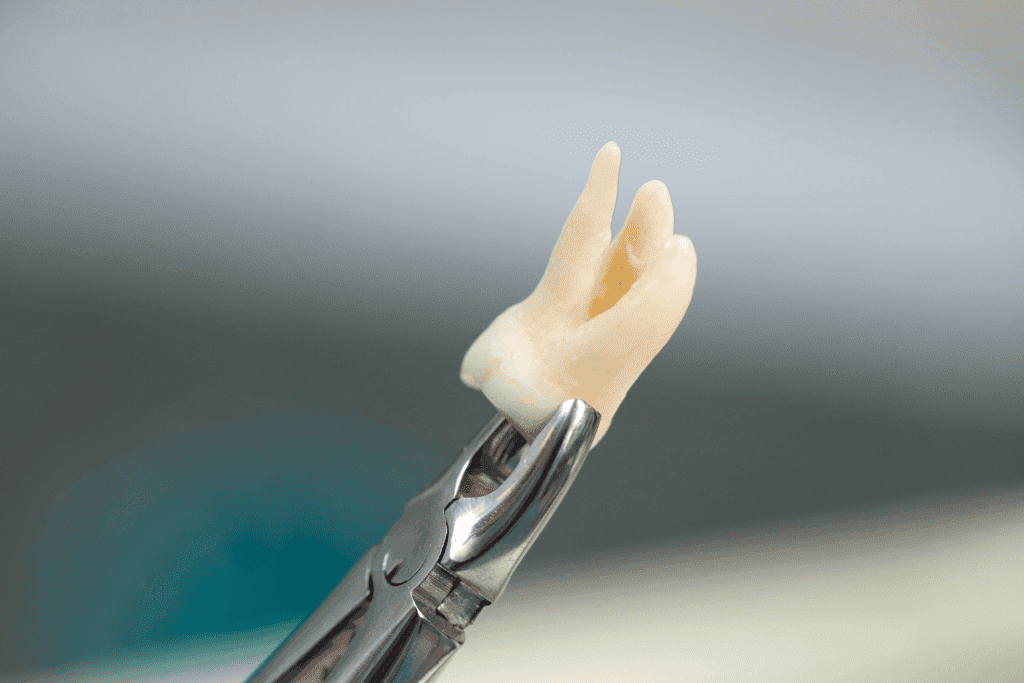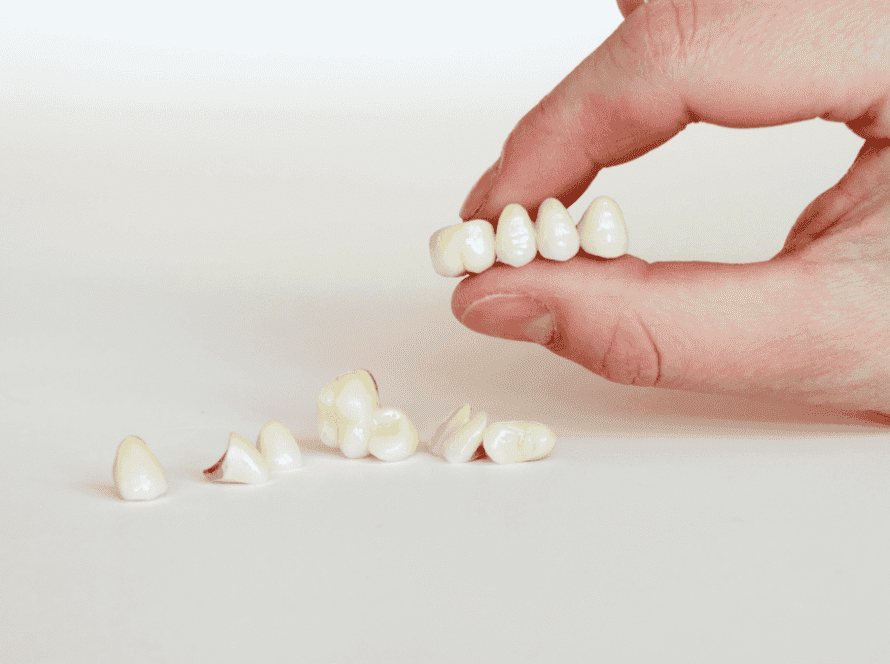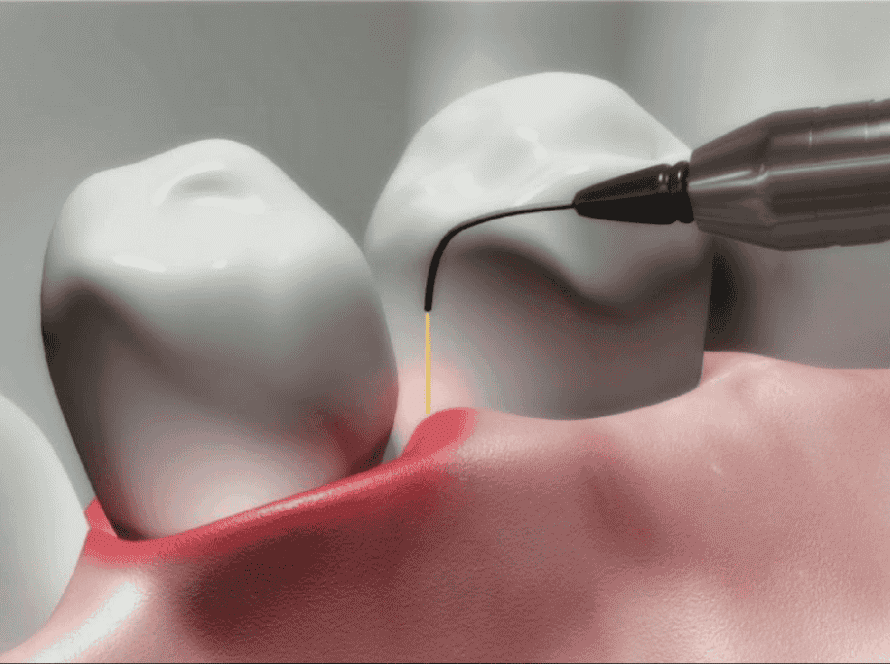Doctors may advise tooth extraction in cases of dental decay, infection, or crowding. The price may change depending on your location, whether the tooth is affected, and whether you need more teeth extracted.
Although wisdom teeth extractions are common among teenagers and certain adults, there are additional reasons why adult tooth extractions may be required.
Dental extractions may be necessary for crowding, excessive dental decay, and infections. When wearing braces, a person may need to have one or two teeth extracted to make room for their other teeth to erupt. In order to maintain a healthy mouth, people receiving chemotherapy or scheduled for an organ transplant may also need to have compromised teeth extracted.
A dentist or oral surgeon will extract a tooth, a rather rapid outpatient surgery that can be done under local, general, intravenous, or a combination of anesthetics. Visible teeth can be extracted easily. More extensive treatment is necessary for teeth that are fractured, impacted, or below the surface.
Reasons for Dental Extraction
Even though permanent teeth are intended to last a lifetime, there are some situations in which tooth extraction may be necessary. One of the most frequent causes is a tooth that is too severely decayed or damaged from trauma for restoration. Additional explanations are as follows:
Dental Crowding: To prepare the mouth for orthodontics, dentists occasionally extract teeth. Correct tooth alignment is the aim of orthodontia, which could not be achievable if your teeth are overlapping each other creating a crowded appearance of teeth. Similarly, your dentist may advise extracting a tooth if it is unable to erupt and break through the gum because there isn’t enough room in the mouth for it.
Infection: Bacteria from the mouth can enter the pulp, which is the part of the tooth that contains blood vessels and nerves. The pulp can get infected if tooth decay or damage reaches there. This could result in an infection. In most cases, this can be fixed using root canal therapy (RCT). However, extraction can be required to stop the infection from spreading if it is so bad that RCT or antibiotics are insufficient to treat it.
Possibility of infection: In cases where your immune system is weakened due to chemotherapy or organ transplantation, the possibility of infection in a specific tooth could be sufficient justification for extraction.
Periodontal disease of the gums: It could be essential to extract one or more teeth if periodontal disease, an infection of the tissues and bones surrounding and supporting the teeth, has resulted in tooth loosening.
What is the price of extracting a tooth?
Whether or not a tooth is impacted affects how much tooth extractions cost. The cost of a simple extraction typically ranges from $300 to $400 per tooth, though it can cost more based on the kind of anesthesia required.
The expense of extracting teeth with affected roots is considerably higher, ranging from $800 to $4,000. The cost of the operation may also vary depending on where you reside because multiple services are priced according to the cost of living in a given location.
How to get ready for a dental extraction
An X-ray of your tooth will be taken by your dentist before scheduling the procedure. Make sure your dentist is aware of any medical conditions you may have and all medications you use, including over-the-counter medications, vitamins, and supplements.
Inform your dentist if you are scheduled to get intravenous medication, such as bisphosphonate, for another medical problem. If so, the extraction needs to be completed before starting the medication regimen to avoid the possibility of osteonecrosis (bone death) in your jaw.
To start, your damaged tooth and the surrounding gum tissue are numbed with local anesthetic. Your dentist will use sophisticated dental tools to delicately loosen and remove your tooth out of its socket. If your tooth is severely decaying or has broken off at the gum line, your dentist may occasionally need to create incisions in your gums to reach it. The socket is cleansed and sterilized after your tooth is extracted. To stop bone loss in your jaw, your dentist may occasionally also put a dental bone graft. Lastly, to aid in the healing process, sutures may be inserted.
Following the treatment, your dentist will cover the extraction site with a piece of gauze and instruct you to apply firm, consistent pressure to close it. This aids in reducing bleeding so that a clot can develop. Clotting is a typical healing side effect. It lessens the chance of dry sockets and encourages healing. After the bleeding has sufficiently stopped, you will remove the gauze. You can experience mild bleeding for the next 24 hours.
What are the Advantages of a Dental Extraction?
Tooth extraction has several advantages. The main benefit is that it lessens dangerous germs that can injure your gums and teeth. A decaying or broken tooth can cause havoc on your smile and a cascade of other issues if left addressed. Your greatest chance of achieving ideal oral health is to have your damaged tooth extracted. A tooth extraction can also relieve dental discomfort practically instantly, particularly if the tooth is badly fractured or diseased.
What to Expect With Tooth Extraction
Tooth extractions are carried out by dentists and oral surgeons, who are specialists with specialized training in performing surgery. Your dentist will provide a local anesthetic injection to numb the area where the tooth will be extracted before extracting it.
If the tooth is impacted, the dentist will remove the gum and bone tissue covering it. After that, the tooth will be gently loosened from the jaw bone and ligaments holding it in place by the dentist using forceps. Teeth that are broken down or fractured occasionally need to be extracted in sections.
Fort Lauderdale Dental Aesthetic Center near me provides professional and compassionate care for same-day tooth removal, ensuring patient comfort and successful outcomes. To schedule a consultation or for more details, contact Fort Lauderdale Dental Aesthetic Center directly. We will provide specific information tailored to your needs and help you prepare for a successful tooth extraction experience.
Fort Lauderdale Dental Aesthetic Center is committed to delivering high-quality dental care, ensuring patient safety, comfort, and satisfaction throughout the tooth extraction.





